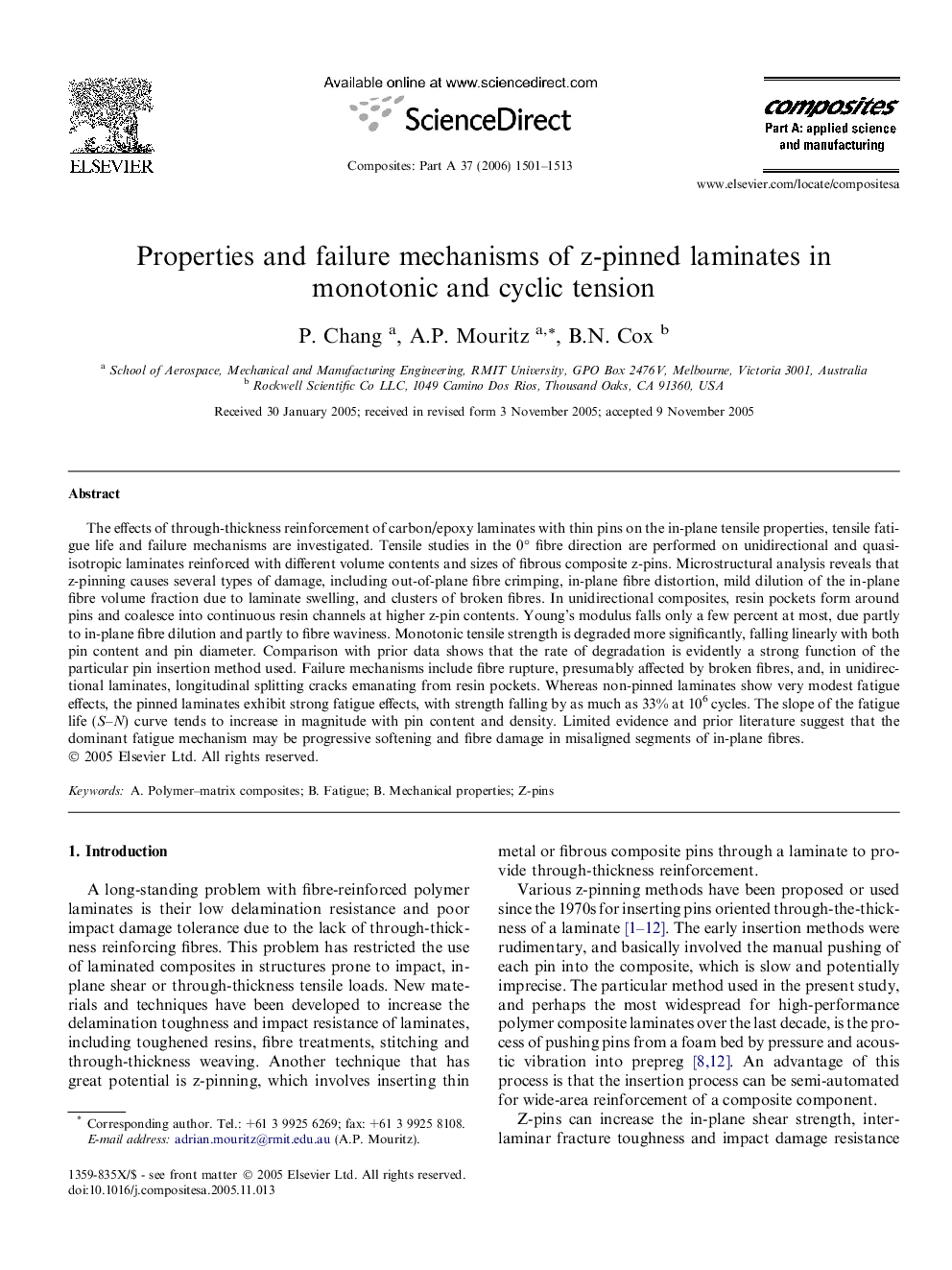| کد مقاله | کد نشریه | سال انتشار | مقاله انگلیسی | نسخه تمام متن |
|---|---|---|---|---|
| 1468197 | 990153 | 2006 | 13 صفحه PDF | دانلود رایگان |

The effects of through-thickness reinforcement of carbon/epoxy laminates with thin pins on the in-plane tensile properties, tensile fatigue life and failure mechanisms are investigated. Tensile studies in the 0° fibre direction are performed on unidirectional and quasi-isotropic laminates reinforced with different volume contents and sizes of fibrous composite z-pins. Microstructural analysis reveals that z-pinning causes several types of damage, including out-of-plane fibre crimping, in-plane fibre distortion, mild dilution of the in-plane fibre volume fraction due to laminate swelling, and clusters of broken fibres. In unidirectional composites, resin pockets form around pins and coalesce into continuous resin channels at higher z-pin contents. Young’s modulus falls only a few percent at most, due partly to in-plane fibre dilution and partly to fibre waviness. Monotonic tensile strength is degraded more significantly, falling linearly with both pin content and pin diameter. Comparison with prior data shows that the rate of degradation is evidently a strong function of the particular pin insertion method used. Failure mechanisms include fibre rupture, presumably affected by broken fibres, and, in unidirectional laminates, longitudinal splitting cracks emanating from resin pockets. Whereas non-pinned laminates show very modest fatigue effects, the pinned laminates exhibit strong fatigue effects, with strength falling by as much as 33% at 106 cycles. The slope of the fatigue life (S–N) curve tends to increase in magnitude with pin content and density. Limited evidence and prior literature suggest that the dominant fatigue mechanism may be progressive softening and fibre damage in misaligned segments of in-plane fibres.
Journal: Composites Part A: Applied Science and Manufacturing - Volume 37, Issue 10, October 2006, Pages 1501–1513